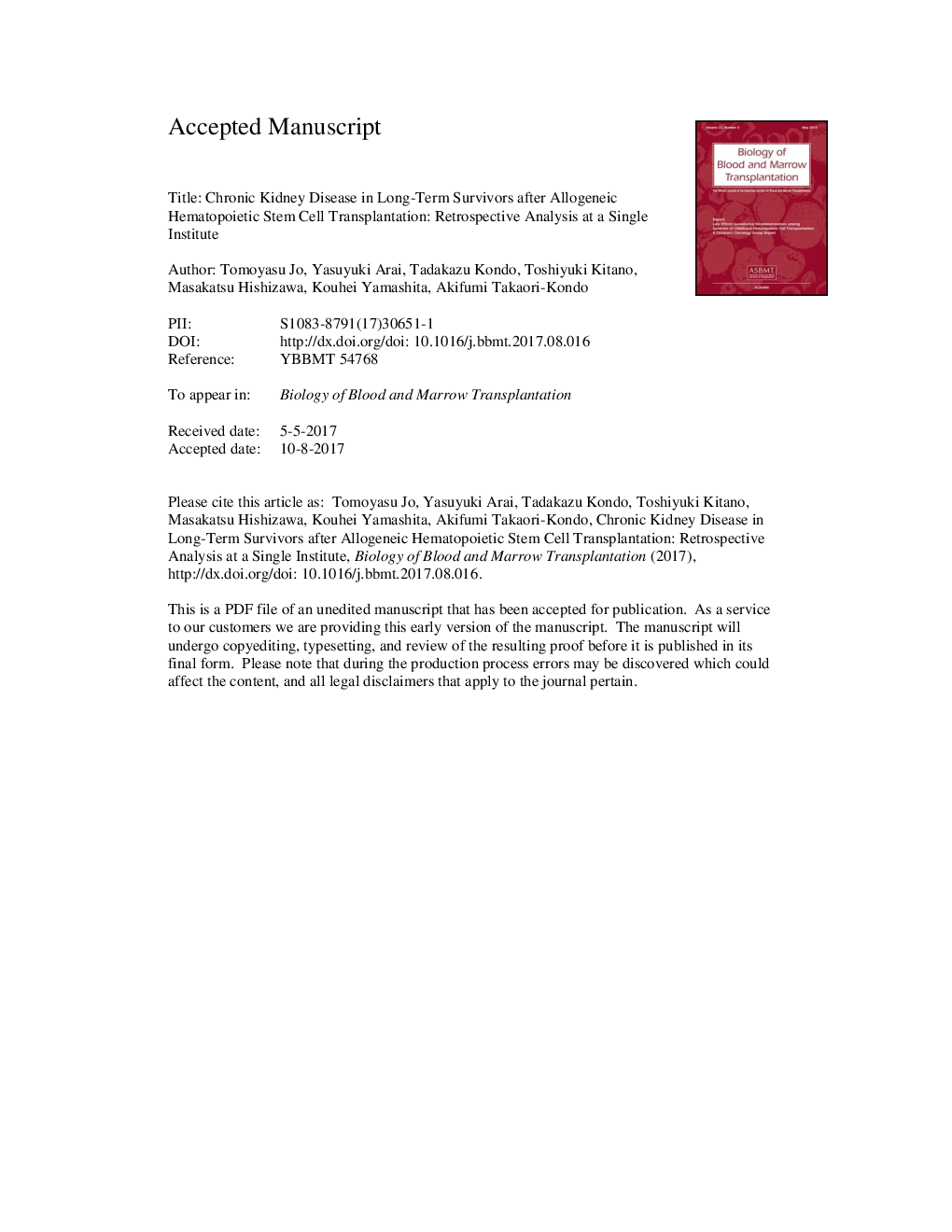| Article ID | Journal | Published Year | Pages | File Type |
|---|---|---|---|---|
| 8430755 | Biology of Blood and Marrow Transplantation | 2017 | 22 Pages |
Abstract
The number of patients eligible for allogeneic stem cell transplantation (allo-HSCT) has increased because of improvements in transplantation procedures. Among long-term survivors of allo-HSCT, chronic kidney disease (CKD) is a major cause of morbidity. We retrospectively analyzed the clinical data of 106 consecutive patients with a median age of 43 years (range, 17 to 73) who had undergone allo-HSCT at our institution between January 2001 and September 2009. Patients who died within 5 years after transplantation or had CKD at the time of transplantation were excluded from study. CKD was defined as a persistent decrease in the estimated glomerular filtration rate to below 60âmL/min/1.73âm2. CKD occurred in 32 patients (30.2%) at a median time of 55 months after transplantation. Three patients required maintenance hemodialysis. In multivariate analysis older age at the time of transplantation (hazard ratio [HR], 1.07/year; 95% confidence interval [CI], 1.02 to 1.13) and a history of acute kidney injury (AKI) within 100 days after transplantation (HR, 6.30; 95% CI, 2.21 to 17.9) were significant risk factors for CKD. Conditioning regimen, stem cell source, or the presence of acute/chronic GVHD was not significantly associated with CKD in this study. Patients with CKD had a lower overall survival rate (HR, 4.11; 95% CI, 1.3 to 13.0) than patients without CKD. Careful monitoring of renal function is required for long-term survivors after allo-HSCT, especially in patients who have experienced AKI and in older patients.
Keywords
Related Topics
Life Sciences
Biochemistry, Genetics and Molecular Biology
Cancer Research
Authors
Tomoyasu Jo, Yasuyuki Arai, Tadakazu Kondo, Toshiyuki Kitano, Masakatsu Hishizawa, Kouhei Yamashita, Akifumi Takaori-Kondo,
